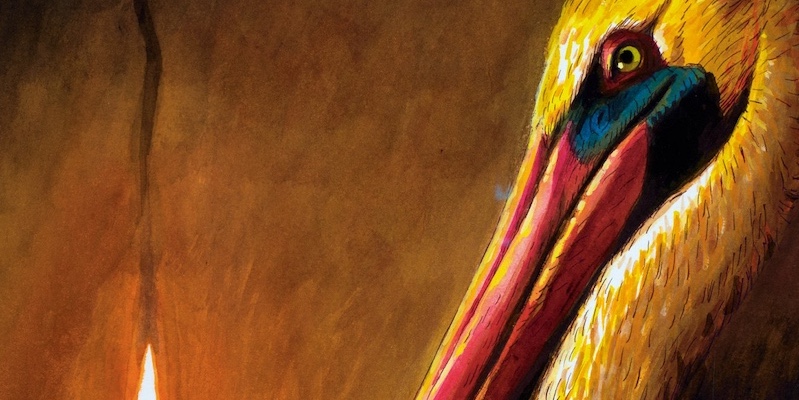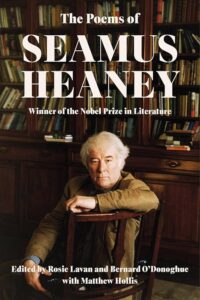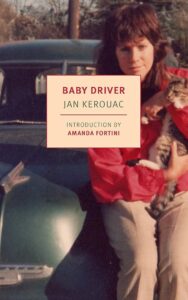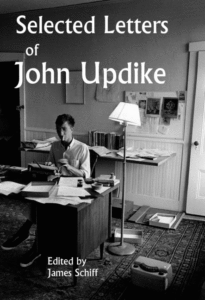
5 Book Reviews You Need to Read This Week
“Hers is a fiction of the absurd, born of a woozy America that doesn’t know how to move forward.”
Our treasure chest of terrific reviews this week includes Robert Pinsky on The Poems of Seamus Heaney, Hanif Abdurraqib on John Edgar Wideman’s Languages of Home, John Banville on Selected Letters of John Updike, Dwight Garner on Jan Kerouac’s Baby Driver, and Hamilton Cain on Joy Williams’ The Pelican Child.
Brought to you by Book Marks, Lit Hub’s home for book reviews.
*

“Seamus Heaney’s genius included a gift for dealing with binary conflicts, large-scale or personal or some of each. The fire of his ambition as an artist was balanced by a cool sense of absurdity, with flashes of gentle self-mockery. This new collection of his great work, at well over two inches thick, is ‘great’ in a workaday sense of the word, as well. That it might be called a ‘doorstop’ is the kind of homely, conventional joke that would be more likely to amuse, rather than offend, Heaney’s many-minded imagination. His work is magnificent, to use a Yeatsian word, partly in its capacity to see human doings, such as books, in many ways at once.
The Poems of Seamus Heaney amplifies a reader’s understanding of the poet’s accomplishment by putting the meticulous grandeur of each book into the context of uncollected and unpublished poems, many of them excellent and all of them illuminating. With a lucid, chronological format for the Contents page, the volume’s editors invite readers to sample the honorable outtakes and preliminaries, the range-finding preparatory studies, that underlie for instance the haunted vision of North (1975) or the magisterial yet intimate scope of Station Island (1984).
Early on, the quite young Heaney had already mastered his distinctive combination of observant, nearly prosaic reporting with the chewable consonant clusters and ecstatic syntax of Gerard Manley Hopkins—as in ‘Digging,’ the famous, beloved poem that opens his debut volume, ‘Death of a Naturalist’ (1966), published when Heaney was not yet 30.
…
“This uncollected context provides air and light, justifying the bulk of more than 1,200 pages. Doorstops, after all, are used to keep doors open.”
–Robert Pinsky on The Poems of Seamus Heaney (The New York Times Book Review)

“Of the many ‘Art of Fiction’ interviews that generously exist in the Paris Review archives, the John Edgar Wideman piece is among the ones I return to most often, for how it illuminates the way I’ve always taken him in as a writer, and as a critic: as insightful as he can be curmudgeonly, as firm as he can be direct, but always incredibly rooted in his principles and convictions. He believes that America is fundamentally dishonest about its past (and present), and he believes one way to correct dishonesty is to look closely and with care at the people who are directly in your personal proximity, something he has done throughout his body of work, which makes one of his answers, toward the end of the interview, intriguing to me. When asked the age-old question of who he believes his audience to be, Wideman first says, I am my audience. That isn’t the whole answer—Wideman mentions that he imagines an auditorium of people, Ishmael Reed, his mother, T. S. Eliot, all reading him, but ultimately, the central audience is the self.
I found myself especially interested in this response as I imagined it manifesting throughout Languages of Home, a collection of Wideman essays spanning nearly an entire life in writing, from 1975 to 2025. I was interested in a revisitation of it because the Paris Review interview was from twenty-three years ago, when Wideman was sixty. He’s eighty-four now, and Languages of Home feels like a text distinctly engineered to find and meet an audience—a text that seems to be concerned with both time and legacy, absolutely work that can be done with one’s back turned to the auditorium, but it is also work that is done better with at least a vague understanding of the fact that the auditorium is full.
…
“I believe that a book like this, as a life is into its eighth decade, can be a book that, simply, says look at what this brilliant person has done for so long. And I believe that is enough. Wideman is certainly a talented enough writer to build a monument to in the form of collected works. However, I think the triumph of Languages is that it goes a step further, largely through thoughtful curation, to give us a pathway through the mind of Wideman. His beliefs, his principles, his willingness to explore and not detach himself from his themes and the central engine of his oeuvre. If there is a way to approach this kind of text through a binary of success, I think it might be a book that feels especially useful for a writer to spend time with. To be witness to a life in language, someone who has done it for a long time, and compromised nothing.”
–Hanif Abdurraqib on John Edgar Wideman’s Languages of Home (4Columns)
“John Updike had the mind of a middling middle-class postwar American male, and the prose style of a literary genius. Such a lord of language was he that even the notoriously grudging Vladimir Nabokov afforded him a meed of praise. A reviewer, musing on the disproportion between the style and content of Updike’s fiction, likened him to a lobster with one hugely overgrown claw. It was a comparison Updike was to remember—for all his bland urbanity, on display from start to finish in this mighty volume of his letters, he could be prickly, and did not take slights lightly.
…
“The tone throughout these many hundreds of letters is consistently equable, except on those few occasions when the writer is driven to objection or to self-defence by intrusive, abusive or presumptuous correspondents. There are abiding enmities—the critics Frederick Crews and Alfred Kazin come in for sound kickings, while Gore Vidal is a thorn Updike never managed to extract from his side—but his fondnesses far outnumber his dislikes. Some readers, no doubt, will long for more frequent and more energetic displays of spleen. In his introduction, Schiff allows, perhaps a shade ill-advisedly, that ‘There is little tragedy, trauma, or pain in these letters—Updike had a good, accomplished, and satisfying life,’ though he hastens to add that ‘there is drama, along with conflict and problems.’
…
“Are his books read now? Towards the end he made a glum self-assessment: ‘I have fallen to the status of an elderly duffer whose tales of suburban American sex are hopelessly yawnworthy period pieces.’ Perhaps so; but he wrote such prose as to make the envious seraphim sigh.”
–John Banville on Selected Letters of John Updike (The Guardian)

“Jan lugged a famous last name through her short life, and it was both a blessing and a curse. Father and daughter looked alike, and there was a continuity of soul between them. She inherited Jack’s imperative toward motion, and she too became a writer, publishing three semi-autobiographical novels…
…
Baby Driver, originally published by St. Martin’s Press, made barely a ripple back in 1981. The Times didn’t review it, nor did many other publications. Sales were minimal. Its republication now feels like a gift—possibly this year’s most important literary salvage mission. Baby Driver is a potent and subversive cultural document, detailing a life that runs almost exactly parallel to the author’s own. It chronicles the narrator’s impoverished childhood spent mostly on the Lower East Side of New York, and her early attraction to drugs, shoplifting, truancy and older boys—attractions that helped land her in various correctional houses, including the juvenile ward at Bellevue.
These childhood scenes are intercut with the narrator’s vagabonding, in her teens and 20s, through Mexico, Guatemala, Costa Rica, New Mexico and elsewhere, blowing where the wind takes her, barely getting by. A pregnancy at 15 ends with a stillborn baby. She has a snake-bitten taste in men, and a lot of ex-cons and addicts and quasi-pimps drag their hairy knuckles through these pages. Sex for her is often just something to do, like a pack of cards kept in her back pocket.
…
“So few children of major writers write as well as their famous parents did. Jan Kerouac is not the exception to this rule. Her prose is nothing like her father’s, though it occasionally has a bounce that can resemble his … I consistently wished this book, which at its best reminded me of Lucia Berlin’s fiction, were 10 percent shrewder. Some magic ingredient is, just barely, missing. But Kerouac’s prose is honest and rough, take it or leave it. She tastes life at first hand. Who was it who wrote that ships are safest in harbor, but harbor isn’t what ships are made for?”
–Dwight Garner on Jan Kerouac’s Baby Driver (The New York Times)
“Joy Williams’s West is a liminal space, untethered, grasslands floating among craggy mountains, biker bars and seedy motels and ghosts baked by harsh sunlight. The 12 stories in her hypnotic collection, The Pelican Child, (most published in The New Yorker and Paris Review) are painterly and provocative, slipping beyond the frame of reality, as if Magritte or Dalí had propped their easels amid the Sonoran desert. We recognize her elliptical voice even as she delights in throwing us off balance. She also likes cars and tinted sunglasses.
…
“The Pelican Child echoes her acclaimed novels: minimalist, cerebral, fixed in the world but seen aslant. Hers is a fiction of the absurd, born of a woozy America that doesn’t know how to move forward, a stasis that seems weirder from tale to tale. These are real people with real problems, though, if blurred at the edges; the prose is beautifully lean, not an ounce of fat on the bones.
…
“Souls adrift among mesas; trailer parks for the downwardly mobile; corporations shattering fragile ecosystems; a fleet of Oldsmobiles and Jaguars—it would be tempting to describe The Pelican Child as an American allegory in the Trumpian era. But the collection is also Williams’s romp across the story form, bending conflicts and chronology into elastic layers. She flavors her pieces with piercing observations, a pinch of irony, and her signature moxie. She’s still got it, still mulling the riddles we pose to each other, and to ourselves. Or as she writes of a character: ‘She presented mystery in terms of mystery. And is that not substance! Is that not meaning!’”
–Hamilton Cain on Joy Williams’ The Pelican Child (The Boston Globe)
Book Marks
Visit Book Marks, Lit Hub's home for book reviews, at https://bookmarks.reviews/ or on social media at @bookmarksreads.





















